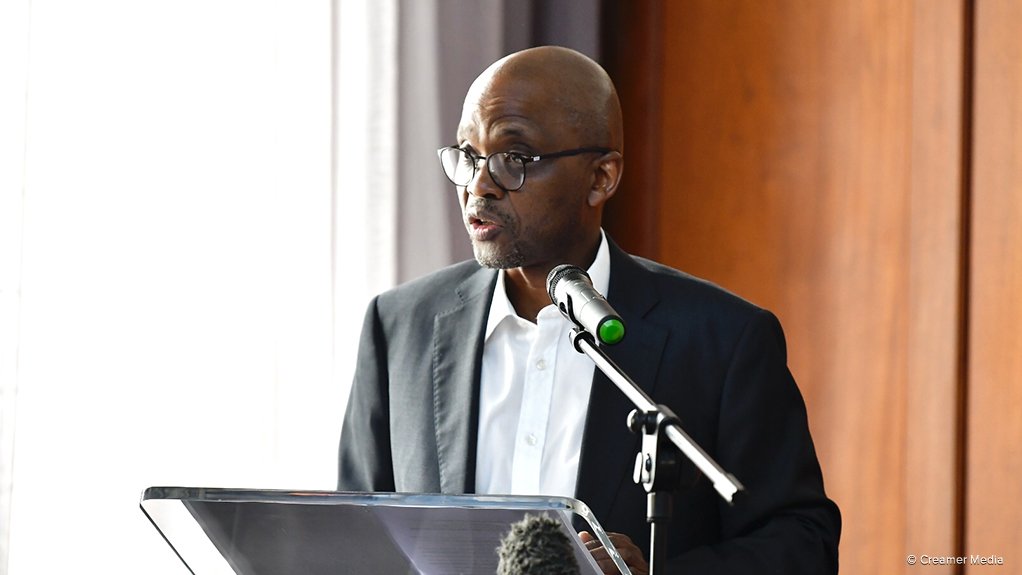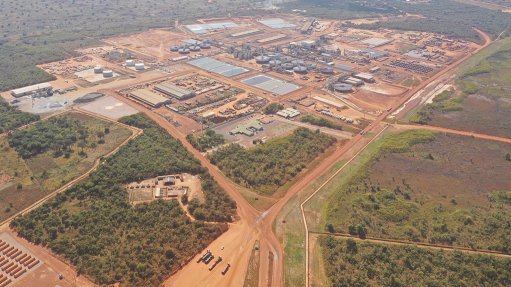Minerals Council welcomes safety improvements, but warns of continuing policy concerns
JOHANNESBURG (miningweekly.com) – The Minerals Council South Africa will, later this year, launch a new health and safety initiative called Khumbela iKhaya, council president Mxolisi Mgojo revealed on Wednesday.
Addressing the council's annual general meeting, he noted that appreciable improvements in the health and safety performance across the mining industry had been achieved.
“2017 had seen the first deterioration in the number of fatalities in 23 years and, by this date in 2018, a further 34 of our colleagues had lost their lives in accidents. We had to take action, and we did, through, among other things, the National Day of Safety and Health in Mining launched by the Minerals Council last August.”
He added that industry could take some consolation in the improvements made, but that the 13 fatalities this year to date, were still far too many, given the incalculable value of human life and the industry-wide goal of attaining zero harm.
CEO Roger Baxter added that he hoped that the council would be able to report “a substantially improved safety performance when we meet here again in 12 months’ time”.
He added that there had been much progress in the mining industry and the economy in the 15 months of President Cyril Ramaphosa’s administration and the 14 months since Gwede Mantashe became Minerals Resources Minster.
This was evidenced by the findings of the Fraser Institute 2018 survey of mining companies. “This is, as we know, a measure of perception and not actual investment, so is to some degree an imperfect measure. But, it is true that perceptions create the realities of the markets in which we operate,” Baxter commented.
He touched on the council's court application to review Mining Charter III, on the basis of the lack of continuing consequences of previous empowerment transactions in respect of renewals and transfers, among other issues, and asked that the contentious aspects not be implemented in the interim. He added that the Minerals Council would not seek to challenge the remaining “95%” of the charter, which should demonstrate its broad acceptance of the charter, as well as its commitment to transformation.
Mgojo, meanwhile, said the 523% increase in the electricity price and the lack of security of electricity supply has materially affected the mining sector’s competitiveness.
Further, unresolved issues in terms of policy and regulation, such as the aforementioned lack of continuing consequences, combined with the unworkable financial provision regulations published by the Department of Environmental Affairs this week, as well as the uncertainties around the implementation of a carbon tax, have further undermined competitiveness.
In 2018, the mining sector invested extensively in skills development and education in South Africa, with Mgojo noting that in addition to the minimum 1% of payroll expended on skills training for employees, the sector also spends 5% of payroll on skills development in line with the Mining Charter.
Moreover, a significant proportion of the estimated R2-billion spent on corporate social investment each year is allocated to education and training.
Mgojo noted that 5 000 students are supported by the industry through bursaries and scholarships in universities and the subvention of lecturer salaries at mining universities, adding that the industry was contributing a share higher than any other sector to skills development and education.
“The industry also works closely with the Mining Qualifications Authority ,which offers qualifying employers grants as part of its internship programme. It is a great pity that the Youth Employment Scheme – or YES – has not been addressed to incorporate incentives for mining companies, but that is something that we believe can still be looked at.”
In terms of beneficiation, Mgojo noted that over R200-billion in extra value had been created in the downstream sectors. “For example, over 90% of cement, 80% of steel, 50% of chemical and plastic feed stocks and 30% of liquid fuels are fabricated in South Africa using locally mined minerals. Even 9% of the world’s platinum catalytic converters used in cars are made here in South Africa.”
He stressed that where the commercial opportunities exist, so did beneficiation. However, “as with the lost decade in mining competitiveness, so too have the beneficiation sectors suffered.”
Mgojo noted that policy uncertainty, rapid increases in electricity costs and the uncertainty of electricity prices had “materially curtailed competitiveness and future investment”, even resulting in South African mining companies building smelters offshore.
He noted that given the industry’s willingness to meet Ramaphosa’s “ten value adding principles”, as stated at the 2019 Mining Indaba, he would challenge the President to work with the industry and other partners to improve competitiveness.
“If we can do this together, we really can achieve the real economic and transformational potential of mining . . . . the Minerals Council, and the industry as a whole, is, for its part, committed to playing its full part in contributing constructively to materially improving the mining sector’s competitiveness, and . . . encouraging much greater investment and transformation in the sector for the benefit of all South Africans,” he concluded.
Comments
Press Office
Announcements
What's On
Subscribe to improve your user experience...
Option 1 (equivalent of R125 a month):
Receive a weekly copy of Creamer Media's Engineering News & Mining Weekly magazine
(print copy for those in South Africa and e-magazine for those outside of South Africa)
Receive daily email newsletters
Access to full search results
Access archive of magazine back copies
Access to Projects in Progress
Access to ONE Research Report of your choice in PDF format
Option 2 (equivalent of R375 a month):
All benefits from Option 1
PLUS
Access to Creamer Media's Research Channel Africa for ALL Research Reports, in PDF format, on various industrial and mining sectors
including Electricity; Water; Energy Transition; Hydrogen; Roads, Rail and Ports; Coal; Gold; Platinum; Battery Metals; etc.
Already a subscriber?
Forgotten your password?
Receive weekly copy of Creamer Media's Engineering News & Mining Weekly magazine (print copy for those in South Africa and e-magazine for those outside of South Africa)
➕
Recieve daily email newsletters
➕
Access to full search results
➕
Access archive of magazine back copies
➕
Access to Projects in Progress
➕
Access to ONE Research Report of your choice in PDF format
RESEARCH CHANNEL AFRICA
R4500 (equivalent of R375 a month)
SUBSCRIBEAll benefits from Option 1
➕
Access to Creamer Media's Research Channel Africa for ALL Research Reports on various industrial and mining sectors, in PDF format, including on:
Electricity
➕
Water
➕
Energy Transition
➕
Hydrogen
➕
Roads, Rail and Ports
➕
Coal
➕
Gold
➕
Platinum
➕
Battery Metals
➕
etc.
Receive all benefits from Option 1 or Option 2 delivered to numerous people at your company
➕
Multiple User names and Passwords for simultaneous log-ins
➕
Intranet integration access to all in your organisation





















